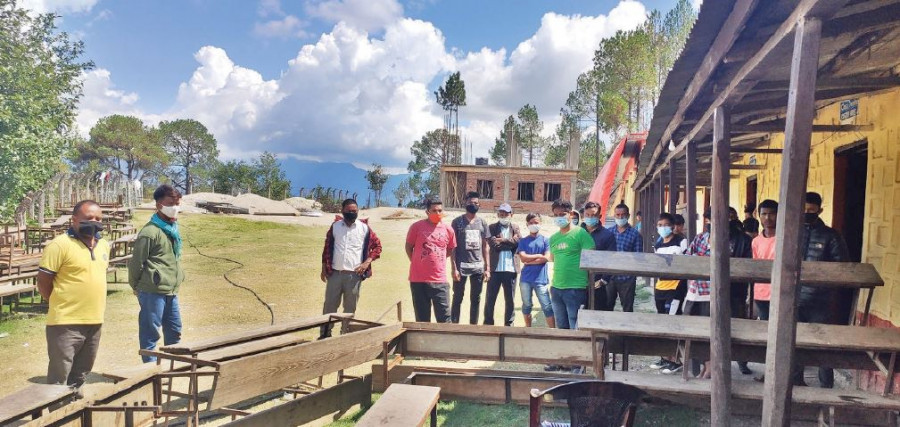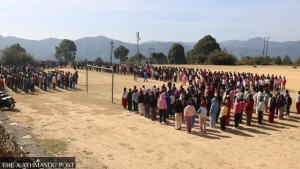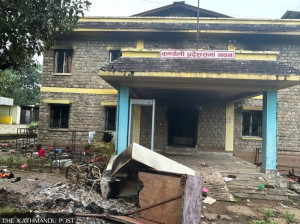Karnali Province
Around 95 percent quarantine facilities closed in Karnali
More than 40,000 beds have been removed from various quanrantine centres throughout the province, according to the Karnali Provincial Health Directorate.
Chandani Kathayat
Health authorities and local units in several districts of Karnali Province have removed more than 95 percent of quarantine facilities. A total of 40,050 quarantine beds were removed in various places of the province in the past two days alone, according to the Karnali Provincial Health Directorate.
Keeping in view the huge number of people returning homes from India and other countries amid Covid-19 outbreak, the provincial and the local governments had set up quarantine facilities at 891 places in 10 districts of Karnali with a capacity of 41,956 beds.
However, the province decided to reduce the number of quarantine beds two months ago, as it continues to see a sharp decline in the number of people returning home from overseas. The government has now prioritised home quarantine and home isolation.
“There are only a few quarantine facilities in Rukum (West), Dailekh, Kalikot, Jumla, Humla, Mugu and Dolpa now. And there is no one staying in the facilities,” said Shyam Acharya, the focal person at the directorate. According to him, a total of 1,906 quarantine beds are now in operation at 76 different places of seven districts.
“The arrival of people from India and other countries is almost nil nowadays. The flow of Covid-19 patients has also decreased in the hospitals. The quarantine facilities set up to control the spread of the virus are of no use since the returnees also prefer to stay in home isolation,” said Acharya. He claimed that the removal of quarantine facilities would not affect the fight against Covid-19.
There are a total of 146 active cases in Karnali Province at present. Among them, 115 are staying in home isolation. According to Acharya, the province at present has isolation facilities at 21 places with the capacity of 1,038 beds.
“The flow of Covid-19 patients in the isolation facilities is also declining,” he said.
The provincial government claims that it has now prioritised developing infrastructures for the effective treatment of virus patients and controlling the spread of the disease. Acharya said the province has given emphasis to expand the capacity of ICU beds, ventilators and oxygen plants, among other health infrastructures in the province.




 10.12°C Kathmandu
10.12°C Kathmandu














